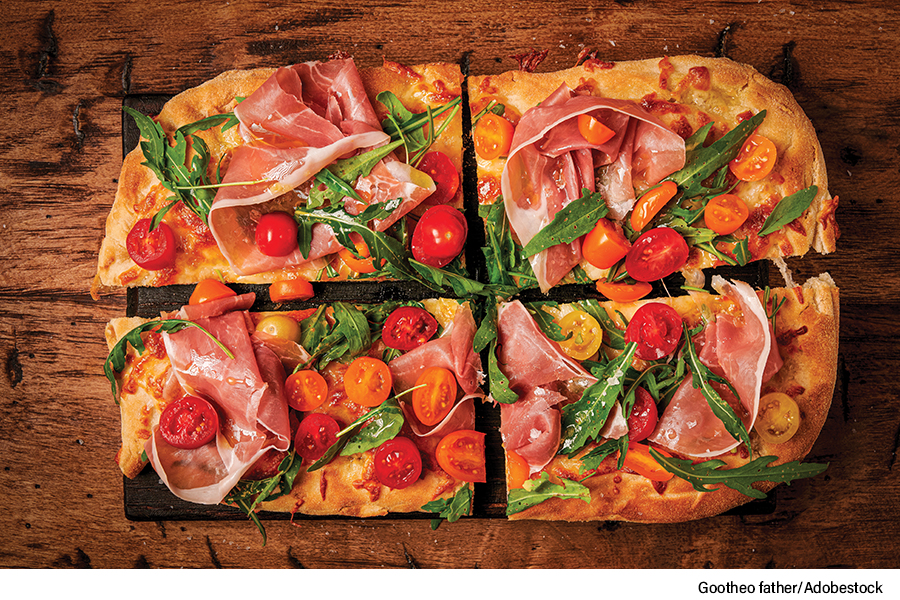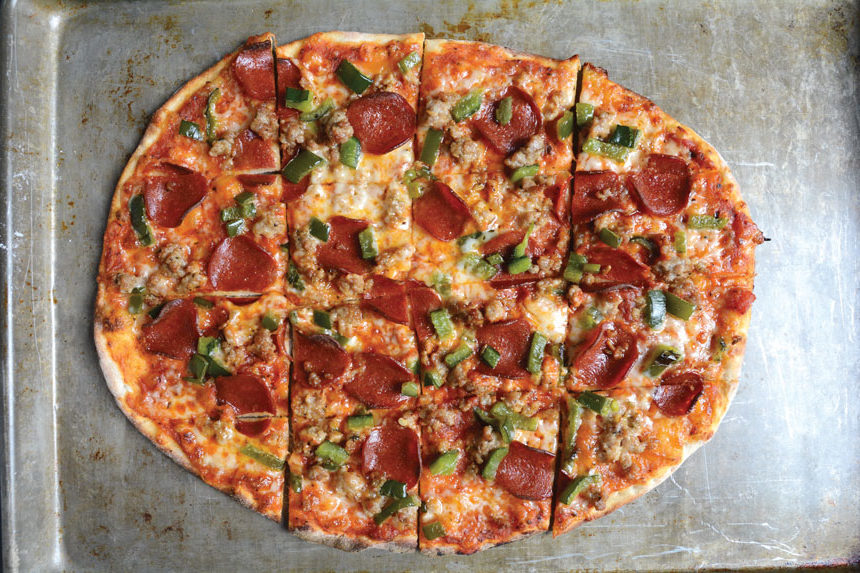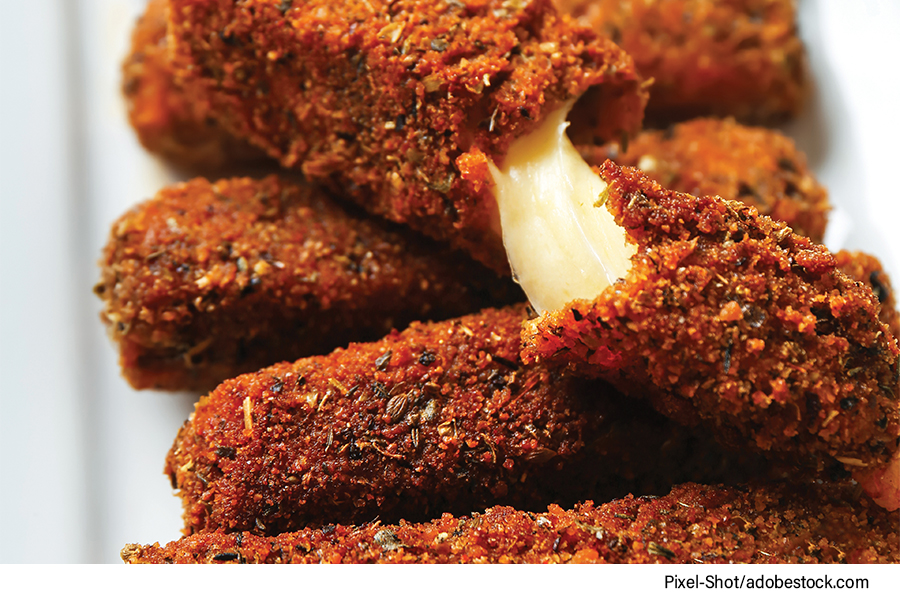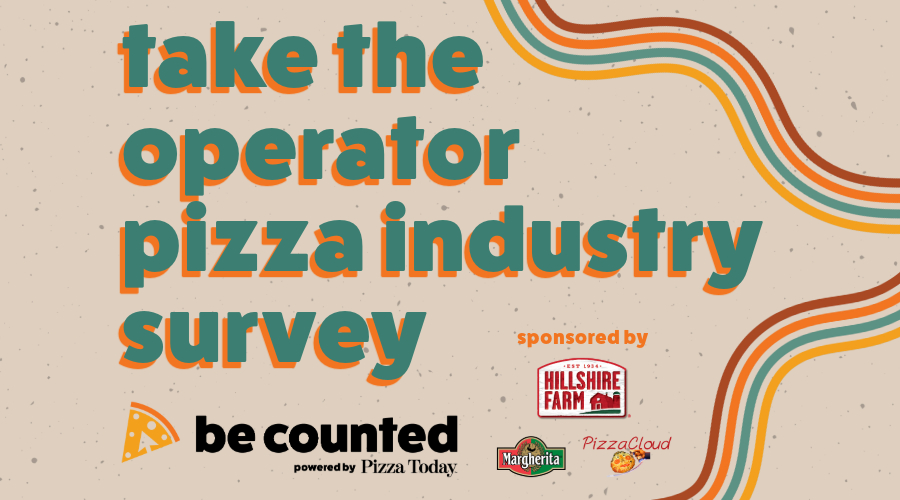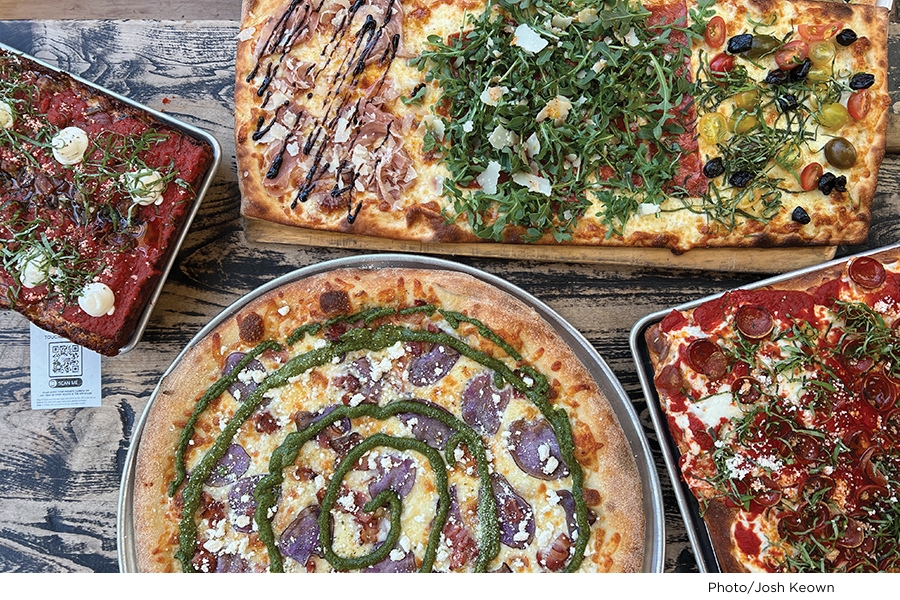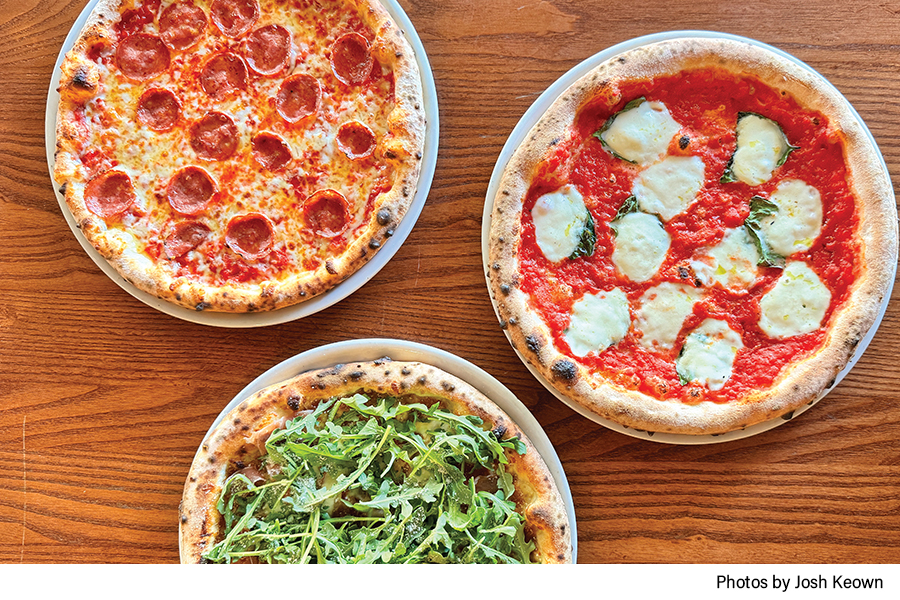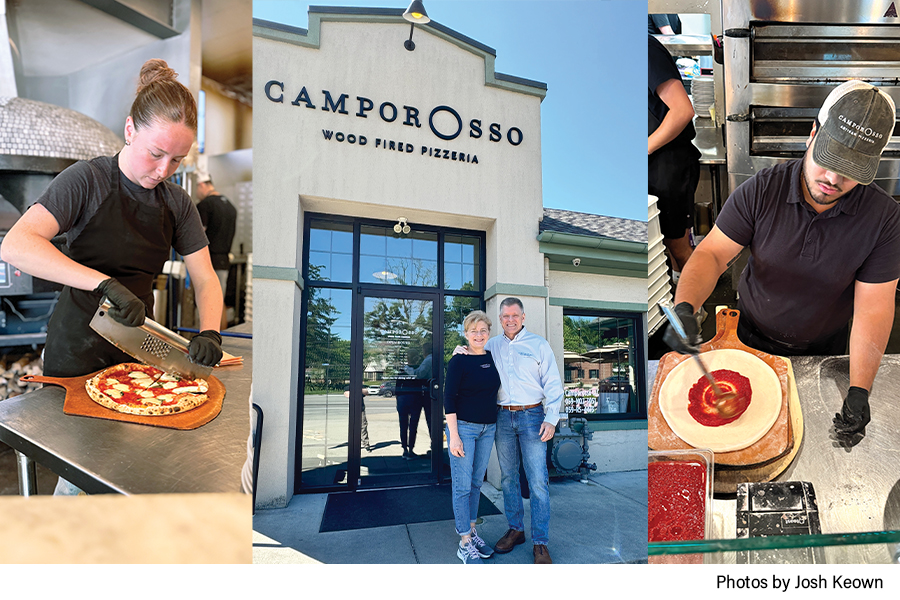Pizzerias are creating limited-edition pies to support local causes and generating buzz in the process
Bill Jacobs’s voice fills with energy as he discusses the 2024 Slice to Meet You campaign at Piece, his Chicago-based brewery and pizzeria.
Starting in January, Piece debuted a different monthly pizza crafted in collaboration with an acclaimed Chicago chef in support of PAWS Chicago, the Midwest’s largest no-kill animal shelter. For every $35 pizza sold over the three-month fundraising campaign, PAWS collected $50 – a $10 donation from Piece coupled with matching donations from four separate donors. After raising nearly $30,000 for PAWS last year, Jacobs hopes this year’s edition, which concludes April 9, surpasses $50,000.
“This has taken on a life of its own,” Jacobs says. “People are passionate about animals, celebrity chefs and pizza, so we hit the trifecta right there.”
Many pizzerias share Jacobs’s zeal for community-centered philanthropy, which can be good for the soul and for business by stimulating revenue, awareness and public goodwill.
“Find a cause that resonates with you and emulate what we’ve done,” Jacobs challenges his fellow pizzeria operators.
Creative campaigns
Pizzerias across the country continue creating clever LTOs to support worthy causes.
Last July, Milwaukee-based Pizza Man introduced a special burger pizza to support Ronald McDonald House Charities Eastern Wisconsin.
In Dallas, Sfuzzi’s month-long Influencer Pizza Challenge tasks local personalities to create limited-edition pies and compete head-to-head for charitable dollars. Efforts have supported a local homeless recovery center, a women’s shelter and the North Texas Food Bank.
In Audubon, New Jersey, Genova Pizza has embraced a different approach, using its pizza boxes, rather than its pies, to support admirable causes.
Last spring, the family-owned establishment created themed pizza boxes featuring an animated superhero caricature of Callen McDonnell, a local two-year-old battling Leukemia. Throughout April 2023, any purchase of a Grandma Pizza – Genova’s best-selling Sicilian-style pie – was placed in the special “Super Cal” box with proceeds directed to the family. The effort raised $1,500 for the McDonnells.
“This felt like an opportunity to do something that mattered,” says Genova Pizza co-owner Ali Doukali.
Genova followed up its Super Cal initiative with a second “local hero” pizza box in September highlighting former Genova employee and U.S. Marine Harrison Whitman. Proceeds from that campaign’s effort went to the Warrior Foundation in Whitman’s honor. Genova has since created a nomination process for community members to suggest future local heroes and beneficiaries.
“Amid a lot of negativity in the world, we want to give back and be a positive community partner,” Doukali says. “Since getting this off the ground, we see potential to do a lot of good for people around us.”
Optimizing results
As Piece, Pizza Man, Sfuzzi and Genova demonstrate, creative, philanthropic initiatives offer pizzerias a chance to show their community-minded ethos and capture attention.
“A lot that can be done to make this attractive to your market,” Jacobs reminds.
And a few well-executed steps can help pizzerias create fruitful campaigns:
#1: Make it special.
At Piece, Jacobs has leveraged the culinary talents – and ingredients – of his collaborators to create novel limited-time offerings. The Hot Smoque’n Pizza created by Barry Sorkin of Smoque BBQ and Doug Sohn of Hot Doug’s, for example, features Sorkin’s smoked chicken thighs and Sohn’s andouille sausage on a white pizza with smoked mozzarella, scallions and creole sauce.
Jacobs and his culinary team at Piece work with every chef collaborator to create, test and tweak the special pizza before its debut.
“You need an enticing and interesting product to draw orders,” Jacobs says.
#2: Time it right.
Pizzerias create urgency when they put an expiration date on cause-related initiatives. Time limits also give operators a focused period to build a story and spark interest without risking a stale initiative. For many, one month seems about right – enough time to let a campaign simmer and capture results, but not too long that the initiative fades into the background as routine business.
And while a pizzeria can roll out a special initiative at any point during the calendar year, a little strategy can maximize impact. Piece, for instance, rolls out its Slice to Meet You effort over the year’s opening three months, historically the year’s slowest quarter for Piece’s bottom line and PAWS’s fundraising.
#3: Spread the word.
When Callen McDonnell and his family visited Genova Pizza last spring to see the pizza boxes, the pizzeria shared photos of the family’s visit on social media, which elevated awareness of the effort.
“Without community support, this wouldn’t have taken off the way it did,” Doukali says.
It’s vital the restaurant (and its partner) actively promote the initiative. Invite local media and influencers to visit and post regularly on social channels to drum up interest.
“It’s important to provide concise and consistent communications throughout the campaign,” says Jacobs, who builds a library of ready-made social content by capturing photos and videos of the pizza-creation process with each celebrity chef.
#4: Plan ahead.
A half-baked effort will do little good for the pizzeria or its beneficiary, so get the necessities in hand before launch.
Ready print marketing collateral, including in-store signage and table tents, and any special ingredients required to make the LTO pies well in advance. Before Genova Pizza introduced its Super Cal pizza box, Doukali researched custom box vendors and secured a high-quality box for the 32-slice Grandma pizza.
In addition, Jacobs urges operators to run the numbers and charge an appropriate price for the special pizzas to ensure beneficial results.
“Be aware of your costs so you can make it work,” Jacobs advises.
#5: Amplify the impact.
A cause-related initiative does not have to stop at the pizza sale, as eateries can drive additional impact.
Genova’s effort to benefit the McDonnell family, for instance, included selling Super Cal t-shirts and sharing a link to the McDonnell’s GoFundMe page on every pizza box. Moving forward, Doukali sees an opportunity to improve messaging and propel impact, perhaps by including a QR code on boxes linking to a personal video or call to action.
“As we go through this process, we certainly see ways to refine it,” he says.
DANIEL P. SMITH Chicago-based writer has covered business issues and best practices for a variety of trade publications, newspapers, and magazines.

